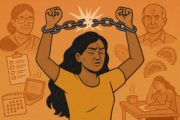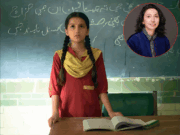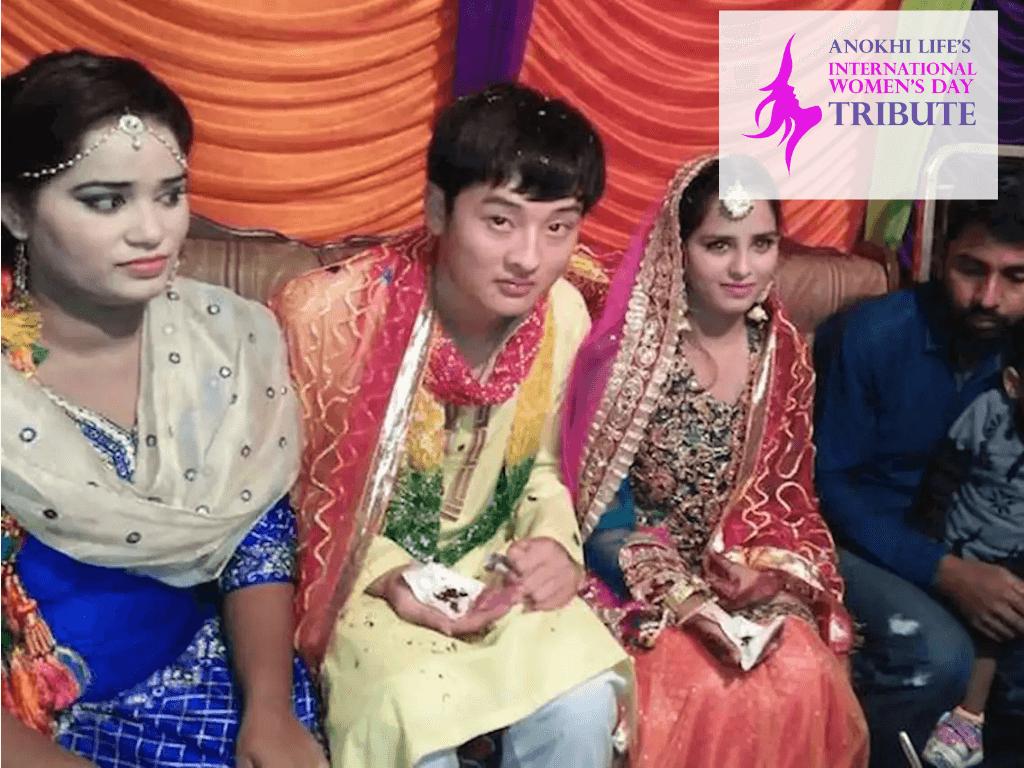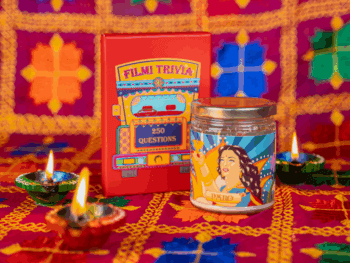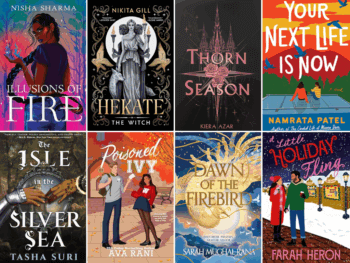As part of our International Women’s Day week-long special (#IWD2020) we take a closer look at the tragic case of Muslim and Christian-Pakistani women and girls who are being trafficked to Chinese men as brides.
Read our IWD Beauty story here
Read our IWD Showbiz story here
Read our IWD What Pisses Me Off here
International Women’s Day is happening on March 8, 2020. According to IWD, this year’s theme is #EachForEqual which means “an equal world is an enabled world.” IWD explains that although each person is in charge of upgrading their “own thoughts and actions” in a way that is respectful and inclusive. However, by working together with these elevated thoughts, IWD notes that we can actively “challenge stereotypes, fight bias, broaden perceptions, improve situations and celebrate women’s achievements.” These efforts, according to IWD, will enable the continued efforts to establish a “gender-equal world.”
Human Trafficking Does Not Enable An #EachForEqual World:
With this theme in mind, it’s crucial to expose practices that hinder gender equality, such as human trafficking (among the other rights and laws that it violates, of course).
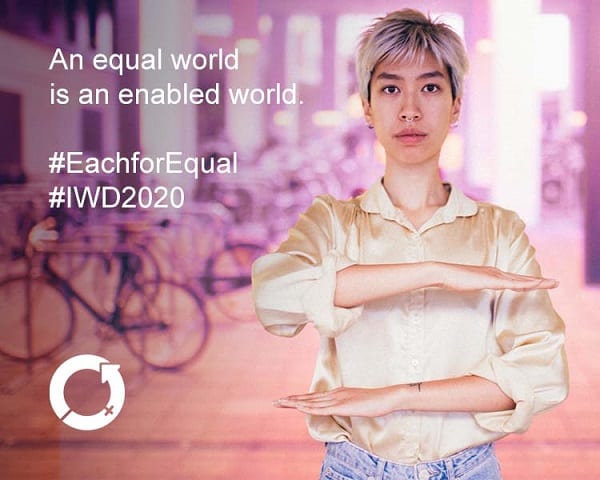
Between 2018 and April 2019, approximately 629 young girls and women were put up for sale and bought by Chinese men. These young girls and women were sold by their families to become brides for these men.
Unfortunately, these females were preyed upon and sold into the human trafficking industry as there is a market in China for brides from overseas due to the fact that China has a greater male population, making it more difficult for men to find a mate. Meanwhile, according to the results of the investigations reported by the Associated Press, with the purpose of finding brides for their trafficking operations, brokers would mainly target the Christian population in Pakistan, along with poorer Muslims. The reason the Christian-Pakistani community was highly sought after though is that they’re one of the most marginalized groups in Pakistan, and the most financially unstable, making them easier targets. The brokers knew that families were desperate enough to sell their daughters off and took full advantage. According to Al Jazeera, the brokers would pay approximately 200,000 rupees to the bride’s family, while both the “Chinese and Pakistani brokers” would pocket around “4 million and 10 million rupees.”
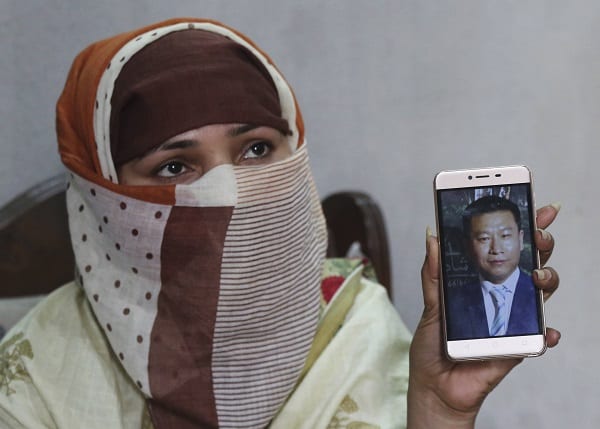
After being sold and taken back to their new husbands’ native country, China, brides were reportedly subjected to a variety of hardships. For example, Al Jazeera notes that some brides had their “organs…harvested,” while others endured “…forced fertility treatments, physical and sexual abuse, and in some cases, forced prostitution.”
What’s The Problem?
A large part of the problem, in terms of why instances of human trafficking even occur, such as in the case of the 629 brides is because of politics.
First, let’s explore the laws surrounding human trafficking in Pakistan. In June of 2018, the Pakistani government finally implemented The Prevention of Trafficking in Persons Act, which was intended to hinder human trafficking, particularly of “…women and children,” according to Pakistani Senate. The Prevention of Smuggling of Migrants Act was also passed with the hope that it might decrease the occurrence of human trafficking as traffickers who were caught would face fines and imprisonment. Despite these laws being in place, very little has been done to implement them. For instance, government officials often turn a blind eye to human trafficking in Pakistan, such as by opting not to introduce more impactful policing efforts to protect citizens. In addition, the government does not provide much care for victims of human trafficking, thus demonstrating their lack of concern.
In the case of the 629 forced marriages that took place, the government hushed the “investigations, putting “immense pressure” on officials from the Federal Investigations Agency pursuing trafficking networks,” reports ABC. Even worse, the government, allegedly, “threatened or bribed” some of the victims who had been rescued from China to stop them from showing up in court to attest to what happened. This allowed “31 Chinese nationals charged in connection with trafficking” to freed, and they fled the country shortly after, reports ABC. The government has also limited the freedom of Pakistani’s press, in terms of their ability to cover news related to human trafficking.
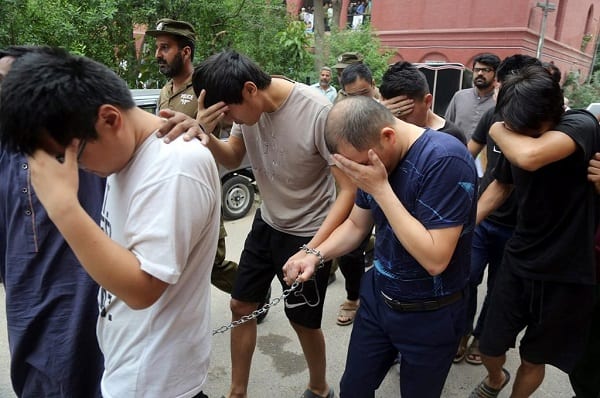
These efforts to cover-up the forced marriages of 629 young girls and women and Chinese men have proved to be a key priority for Pakistan as they attempt to protect their relationship with China. After all, ABC highlights that “Pakistan is receiving massive aid under China’s Belt and Road Initiative. Beijing has promised Islamabad a sprawling package of infrastructure development, from road construction and power plants to agriculture.”
The second issue is the prevailing culture in Pakistan that allows minority groups to be taken advantage of, like the Christian population. Pakistani Christians make up less than 2% of the country’s population and are often discriminated against due to their religion, according to BBC. Due to the government’s combination of ineffective protection for this overall group due to their religion and the lackadaisical enforcement of laws in the country surrounding human trafficking, it is not surprising that Pakistan Christians are targeted.
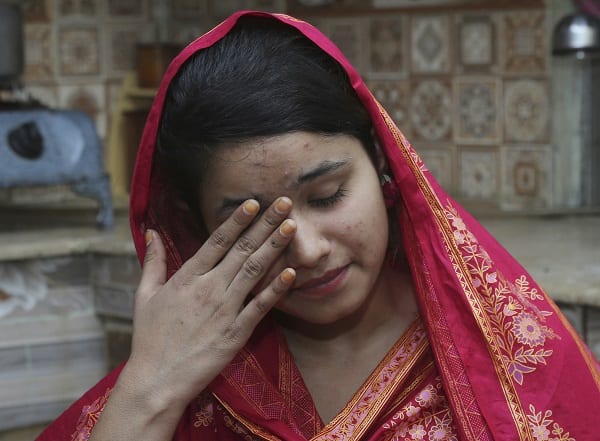
Change Is Needed:
Of course, there are many measures that need to be established to battle human trafficking, but the following would be particularly helpful:
Firstly, the government needs to do a better job of protecting it’s minority populations by way of anti-discriminatory laws. As well, Pakistani Christians should not be limited to being unskilled labourers due to their religion. Instead, they should be able to pursue higher positions so that they’re able to improve their financial situations. This will help to ensure that Pakistani Christians feel less desperate and inclined to sell their daughters into human trafficking as a source of income.
Second, the government needs to make greater efforts to prioritize the safety of their people by actively implementing impactful law enforcement efforts and programs to combat human trafficking. As a nation, law enforcement needs to be charging and punishing people for their wrongful actions, as it relates to human trafficking. As well, there needs to be more measures in place to help victims of human trafficking.
That said, to enable an #EachForEqual world, or more specifically, in Pakistan, change is required at the top so that its people can benefit.
Main Image Photo Credit: www.asianews.it
Devika Goberdhan | Fashion Editor
Author
Devika (@goberdhan.devika) is an MA graduate who specialized in Political Science at York University. Her passion and research throughout her graduate studies pushed her to learn about and unpack hot button issues. Thus, since starting at ANOKHI in 2016, she has written extensively about many challe...









